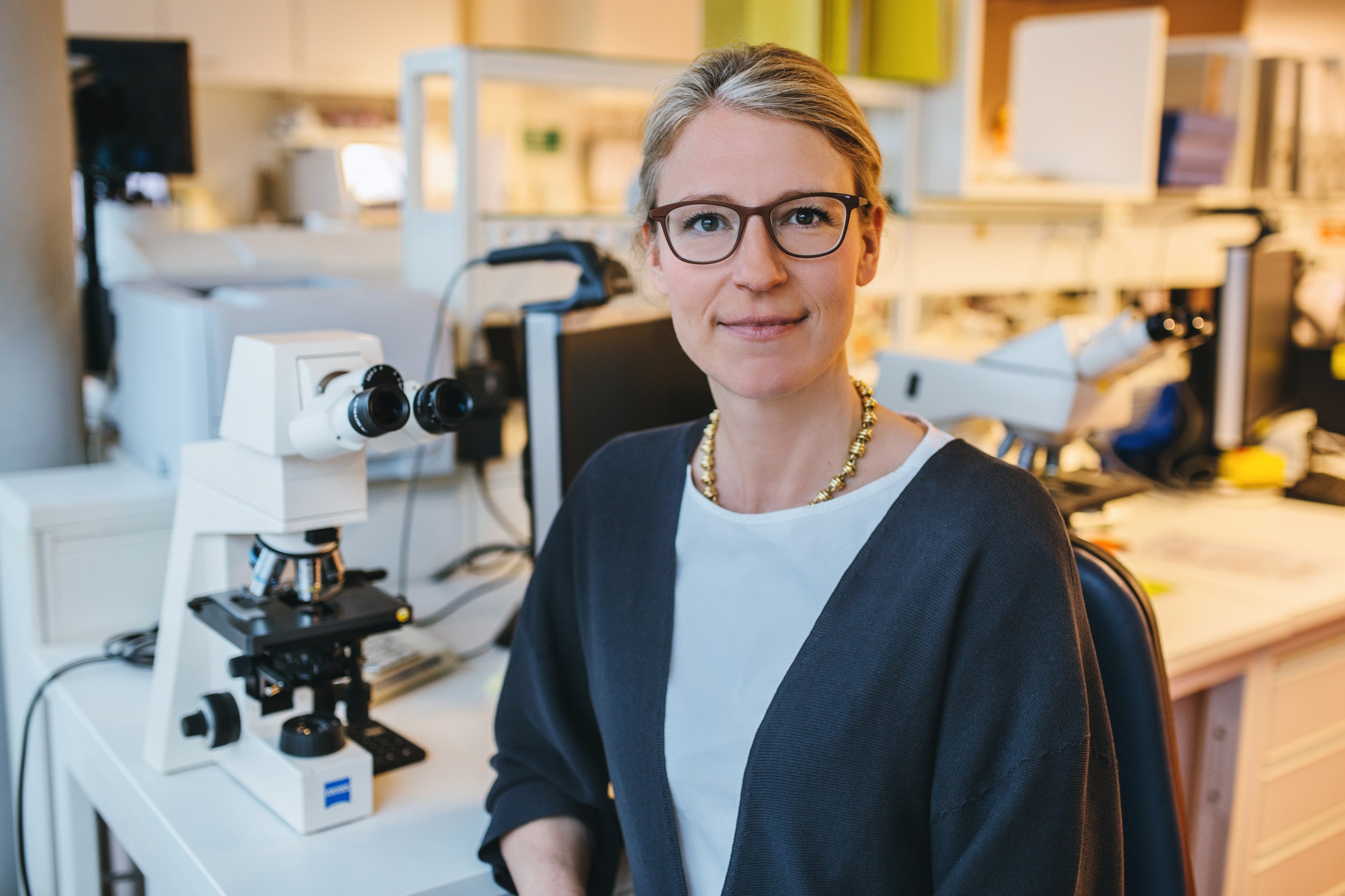Interview with
Christina Schindera, MD
Scientist in the Paediatric Cancer Epidemiology Group at the Institute of Social and Preventive Medicine (ISPM), University of Bern, and paediatric oncologist at the University Children’s Hospital Basel.

What exactly is epidemiological research?
Epidemiological research deals with groups of healthy or sick people. For example, it examines the occurrence of diseases in a population, their frequency, distribution and causes, as well as possible risk factors and prognoses. In contrast, clinical research investigates a question directly in humans, for example whether a new drug is effective. Basic research, on the other hand, develops new drugs or vaccines in the laboratory.
Why is epidemiological research in the field of childhood cancer particularly important?
Epidemiological research examines the incidence of cancer in children and adolescents. Based on data collected centrally in the Swiss Childhood Cancer Registry, we analyse whether this frequency changes over time and investigate possible causes. Another research focus is on the relationship between the various cancer therapies, such as chemotherapy, radiation, surgery and stem cell transplantation, and the occurrence of late effects of cancer. These include, for example, heart and lung diseases, limited reproductive capacity and the occurrence of second tumours.
What are the aims of epidemiological childhood cancer research?
One important aim of research is to investigate the incidence of late effects after cancer. This is done on the basis of questionnaires sent to all cured patients or their parents. From this we can learn which health problems are particularly common, what their causes are, and how they might be avoided. Secondly, these studies help to improve the treatment and follow-up care of childhood cancer patients. For example, we may try to reduce the dose of a particular drug used during cancer therapy if we know that it increases the risk of heart disease in adulthood. Specifically, we can also invite patients who have had very strong chemotherapy to special follow-up consultations. With the help of an ultrasound examination of the heart, even minor changes in the heart muscle can be detected long before symptoms occur. This allows us to give better advice to former patients and to target additional risk factors such as high blood pressure or obesity. These studies thus help to positively influence the course of the disease and improve the quality of life of the people affected.
What do you think has been achieved in recent years?
Epidemiological research has contributed to the fact that we now know much more about possible late effects of childhood cancer therapy. This has enabled us to adapt the treatment of newly ill children accordingly. This is why nowadays the long-term prognosis is much better with a gentler therapy that leads to fewer late effects. Detailed recommendations for follow-up care have emerged from this knowledge. This allows us to accompany former childhood cancer patients into adulthood within the framework of specialised follow-up consultations, with the aim of detecting late effects as early as possible, treating them quickly and thus improving the prognosis.
Who is responsible for epidemiological research in Switzerland?
The Paediatric Cancer Epidemiology Group, which I am also involved in, is the largest epidemiological research group in Switzerland and is located at the Institute of Social and Preventive Medicine at the University of Bern. And that is where you will also find the Swiss Childhood Cancer Registry, which has been registering all children with cancer for over 40 years and collects information on cancer diagnosis and treatment. This enables close cooperation between the hospitals and doctors treating the children, the Childhood Cancer Registry, patient organisations and the various research projects on late effects and follow-up care. However, there are also other epidemiological research groups in Switzerland.
What challenges does epidemiological research face?
Since January 2020, our research group and the Swiss Childhood Cancer Registry have been separated. While the Childhood Cancer Registry is funded by the federal government under the new Cancer Registration Act, we need to be proactive in ensuring that we receive the necessary funding for our research projects. As with other rare diseases, the funding of research projects on the various types of childhood cancer is relatively difficult. In order to continue to be at the forefront of research, we thus depend on support through grants and subsidies as well as private donations.